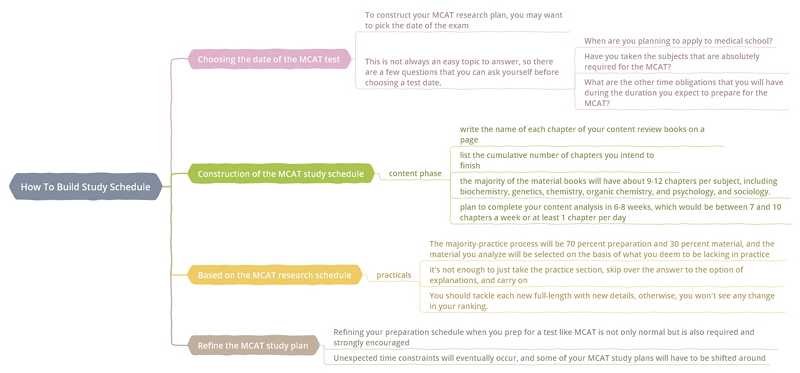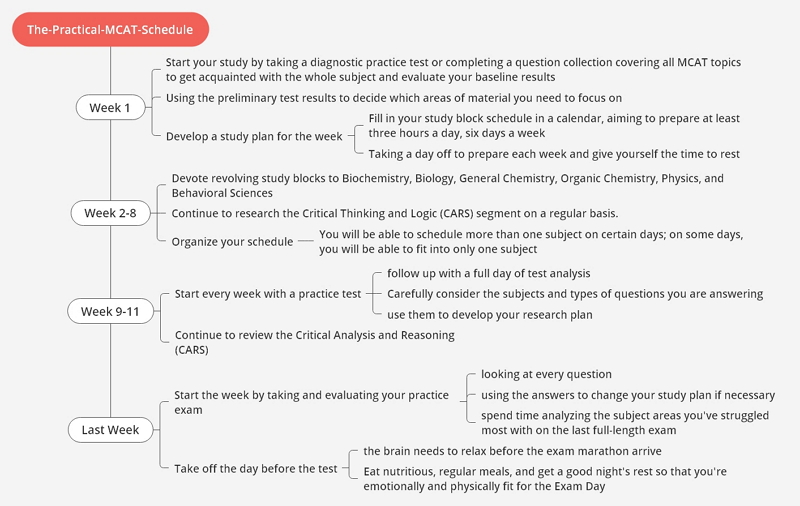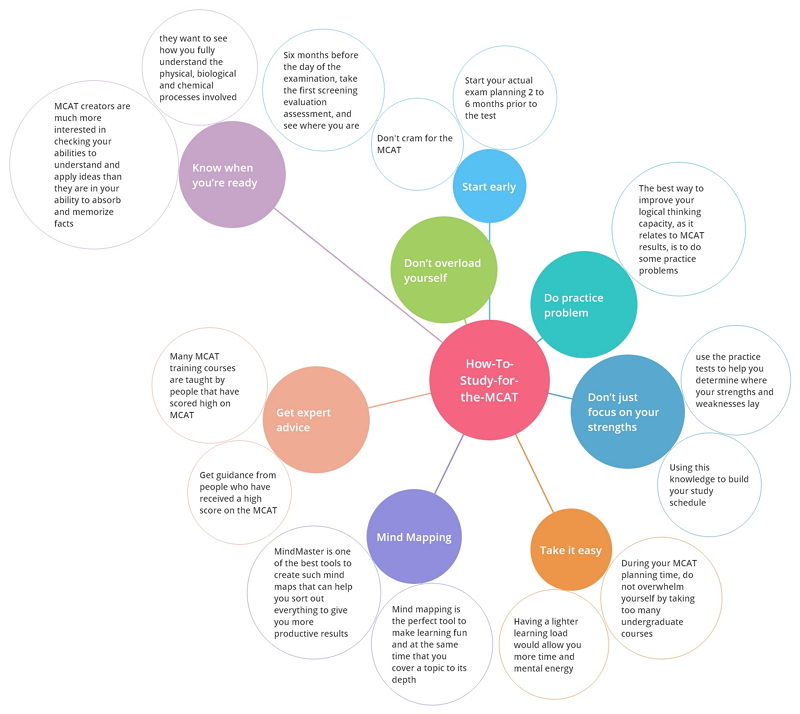Prep Guide: How to Study for The MCAT

The MCAT (Medical College Admission Test) is a national standardized test used by nearly all medical schools in the United States to assess candidates for access to their medical programs.
Many medical school boards put as much weight on the applicant's MCAT score as they do on their GPA. If the student performance MCAT and GPA give similar evaluations of the applicant's credentials, it is normal for admission boards to put more weight on the MCAT ranking.
1.1 The MCAT Test Dates in 2020
Your exam date will depend on when you apply to a medical school.
- August/September exam dates are perfect for students who are already in school for quarter semesters, as this will give them ample time in the summer to study;
- The January exam dates are also perfect for students since they can take advantage of the winter break to prepare;
- If you would like to pick medical schools to apply to know your MCAT ranking, the last test date for MCAT 2020 is April 25, 2020.
Given below is a step-by-step guide to building your study schedule, which consists of 4 steps.

Source: EdrawMind
1. Choosing the date of the MCAT test
To construct your MCAT study plan, pick the date of the exam. This is not always an easy question to answer, so there are a few questions that you can ask yourself before choosing a test date.
- When are you planning to apply to medical school?
- Have you taken the subjects that are required for the MCAT?
2. Construction of the MCAT study schedule: content phase
Now, let's look at the structure of the MCAT study schedule. You should think of the MCAT study schedule as two separate phases. Seventy percent of the time should be spent on learning materials, while 30 percent should be spent on practice.
The second part of the analysis is practice-heavy with a little bit of material. During this process, the numbers shift, and you can concentrate on 70 percent practice and 30 percent content.
3. Based on the MCAT research schedule: practicals
You are now planning out the second part of your MCAT study journey. The majority-practice process will be 70 percent preparation and 30 percent material.
When you take MCAT practice questions during this process, it's not enough to just take the practice section, skip over the answer to the option of explanations, and carry on.
4. Refine the MCAT study plan
Often students are reluctant to change their schedule once they've created it. The study schedule’s point is to lead you through the study process — it's not a regulation, and it is not supposed to be fixed and rigid.
Refining your schedule when you prep for a test like MCAT is not only normal but is also required and strongly encouraged.
The following is a practical MCAT shcedule for 3 months to prepare for examination, from which detailed plans have been arranged in different time period.

Source: EdrawMind
Week 1
Start your study by taking a diagnostic practice test or completing a question collection covering all MCAT topics to get acquainted with the whole subject and evaluate your baseline results.
You can use the preliminary test results to decide which areas of the material you need to focus more on.Develop a study plan for the week. Fill in your study block schedule in a calendar, aiming to prepare at least three hours a day, six days a week.
Week 2-8
Devote revolving study blocks to Biochemistry, Biology, General Chemistry, Organic Chemistry, Physics, and Behavioral Sciences. Also, continue to study the Critical Thinking and Logic (CARS) segment regularly. Organize your schedule around your existing commitments.
Week 9-11
Start every week with a practice test and follow up with a full day of test analysis. Carefully consider the subjects and types of questions you are answering, and use them to develop your study plan. Continue to review the Critical Analysis and Reasoning (CARS) section regularly.
Last Week
Start the week by taking and evaluating your practice exam, looking at every question, and using the answers to change your study plan is necessary. For the next few days, spend time analyzing the subject areas you've struggled most with on the last full-length exam.
Take off the day before the test; the brain needs to relax before the exam marathon beings.

Source: EdrawMind
1. Start early, don’t cram
This should be clear, but it is important to stress how important it is to start studying for the MCAT early. Don't cram for the MCAT. Start your actual exam planning 2 to 6 months before the test.
2. Do practice problem
Though information acquisition is an essential part of studying for the MCAT, it is not enough. The MCAT is designed to assess your ability to adapt your understanding of scientific ideas in diverse contexts – to measure your ability to think objectively. The best way to improve your logical thinking capacity is to do some practice problems as it relates to prospective MCAT results.
3. Don’t just focus on your strengths
Although relying exclusively on your strengths can be a good strategy for certain standardized exams, it is not the best test planning technique for the MCAT. If you plan to prepare on your own or take the MCAT training course, use the practice tests to help you determine where your strengths and weaknesses lay.
4. Take it easy. Don’t overload yourself
If you're like most pre-graduate students, you'll start training for the MCAT when you're already completing your undergraduate degree. Don’t overburden your workload.
5. Use Mind Maps
Mind mapping is the perfect tool to make learning fun and, at the same time, to cover a topic to its depth. EdrawMind is one of the best tools to create such mind maps that can help you sort out everything to give you more productive results. EdrawMind is available in both desktop and online versions, making it one of the best tools to create mind maps.
6. Get expert advice
Get guidance from people who have received a high score on the MCAT. Find out what research materials they used during their training and what preparation methods they recommended.
7. Know when you’re ready
By the time you've finished most of your undergraduate college courses and are ready to take the MCAT, you've proven that you can memorize knowledge, use formulas, and learn new concepts.
MCAT checks your abilities to understand and apply ideas than they are in your ability to absorb and memorize facts.
During your MCAT planning time, do not overwhelm yourself by taking too many undergraduate courses. It is recommended that the particular study plan that you follow fits your learning style, meets your timetable, and puts equal focus on content analysis and testing. You can easily learn how to study for the MCAT test.
With EdrawMind, you can quickly create easy mind maps to study effectively. The software provides 12 different map types, 33 themes, and more than 700 clip art materials to design your study maps with almost unlimited possibilities.





